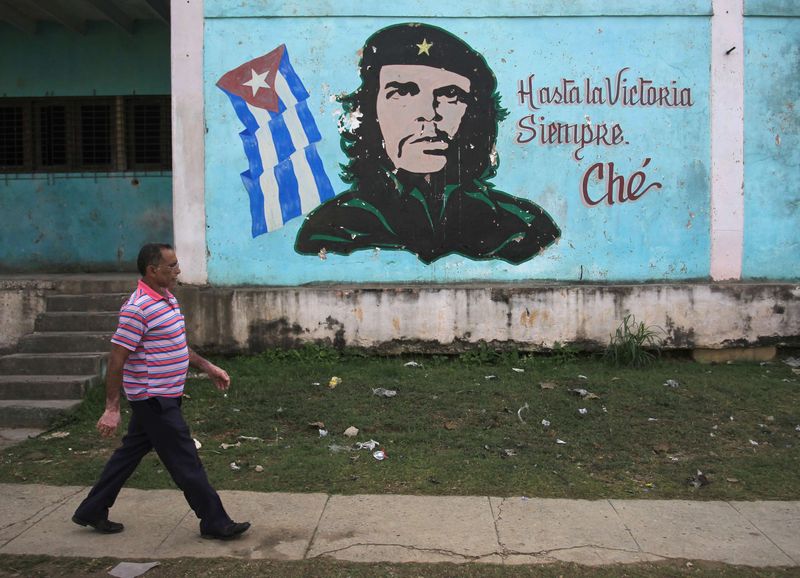By Roberta Rampton and Patricia Zengerle
(This January 3 story was refiled to correct time element to "half-century" from "half-decade" in third paragraph)
WASHINGTON (Reuters) - Only two-and-a-half weeks after U.S. President Barack Obama announced a historic prisoner exchange and re-establishment of long-broken ties with Cuba, his new policy is encountering obstacles that threaten to flare up when Congress returns next week.
Questions surrounding Havana's human rights record and the promised release of Cuban detainees have the potential to inflame anti-Havana passions on Capitol Hill, where the House and Senate are expected to hold hearings soon after they resume on Tuesday.
Whether the obstacles amount in the long run to anything more than speed bumps on the way to wider detente remains to be seen. But at a minimum, they illustrate how benefits from Obama's ditching of a half-century of U.S. isolation of Cuba won't come quickly or without rancorous debate.
Signalling that it will continue to suppress dissent, the government of Cuban President Raul Castro on Tuesday detained more than 50 activists, dissident leaders said, to squelch a planned gathering in Havana's Revolution Square. And dissidents reported new detentions on Thursday.
The crackdown brought sharp condemnation from the U.S. State Department. All of those detained had been released by the weekend, dissidents said.
There is also concern over when 53 people Washington considers political prisoners will be released and on what terms. A senior Obama aide said at the time of the Dec. 17 announcement that Cuba had agreed to free them as part of the deal to restore diplomatic relations and that an unspecified number of them were already released. Raul Castro referred to Cuba's freeing of a group of persons the U.S. "has shown interest in" as part of his announcement of the wider deal but didn't mention a number.
But Cuban dissident groups say they believe that most of them remain in some kind of detention. The White House has steadfastly refused to release the names of the 53 and has not shared the list with the dissident groups.
A source with knowledge of the agreed prisoner release told Reuters the delay stems from lack of a final deal on where the prisoners will go - leaving for the United States or Europe, or staying in Cuba. In the past the Cuban government has preferred that such prisoners leave the country when released. But some are likely to insist on their right to stay in Cuba and continue fighting for their political rights.
The confusion over those releases and the latest dissident round-ups have provided ammunition for congressional critics of Obama's Cuba policy. Those lawmakers have said they will seek to slow or block improved ties with Havana.
"The Castro regime's latest acts of repression against political dissidents in Cuba make a mockery of President Obama's new U.S.-Cuba policy," said Sen. Marco Rubio, Florida Republican and a potential 2016 presidential candidate. "The fact that the regime continues to violate the human rights of Cubans like this shows that it has even less incentive to change its ways" after Obama's deal with Castro, Rubio said.
One early legislative fight over Cuba policy could come when Congress considers funding for the Department of Homeland Security. The $1.1 trillion government spending bill passed in mid-December funds DHS only until Feb. 27, because conservative Republicans want to gut Obama's executive orders on immigration reforms.
Congressional aides said they expect lawmakers opposed to the Cuba policy to use the DHS funding bill to eliminate any funding for Obama's Cuba plans.
LONG AND BUMPY ROAD
Such moves will underscore the barriers to change.
It may be some time before people in Cuba as well as U.S. businesses and others reap opportunities from Obama's new policy, said Arturo Valenzuela, the State Department's top official for Latin America in Obama's first term.
"It's clear to me that what the Cubans want is perestroika, but they don't particularly want glasnost," said Valenzuela, now with the Covington & Burling law firm.
'Perestroika' was former Soviet leader Mikhail Gorbachev's ultimately failed effort to reform and rebuild the Communist Party. 'Glasnost' was his move to make the USSR a more open society.
"It's too early really to tell how this is going to work itself through, and it's probably going to take longer than some people maybe expect," Valenzuela said.
In unveiling the opening to Cuba on Dec. 17, Obama acknowledged, "I do not expect the changes I am announcing today to bring about a transformation of Cuban society overnight."
The source familiar with the prisoner release deal, who spoke on condition of anonymity, said the White House was eager to announce the diplomatic breakthrough with Cuba in December, before opposition Republicans assume control of both chambers of Congress next week. U.S. officials said their timetable was driven by the deteriorating health of USAID contractor Alan Gross, freed from a Cuban prison as part of the deal.
Support for isolating Cuba has ebbed in Congress in recent years. But some U.S. lawmakers of both parties vehemently oppose normalizing relations.

Many legal experts, and the White House, say Obama has broad executive powers to ease restrictions on commerce, transportation and banking, as well as open a U.S. Embassy in Havana - even if Congress objects.
(Writing by Warren Strobel. Additional reporting by David Adams in Miami, Daniel Trotta in Havana and Lesley Wroughton in Washington.; Editing by Marilyn Thompson and Martin Howell)